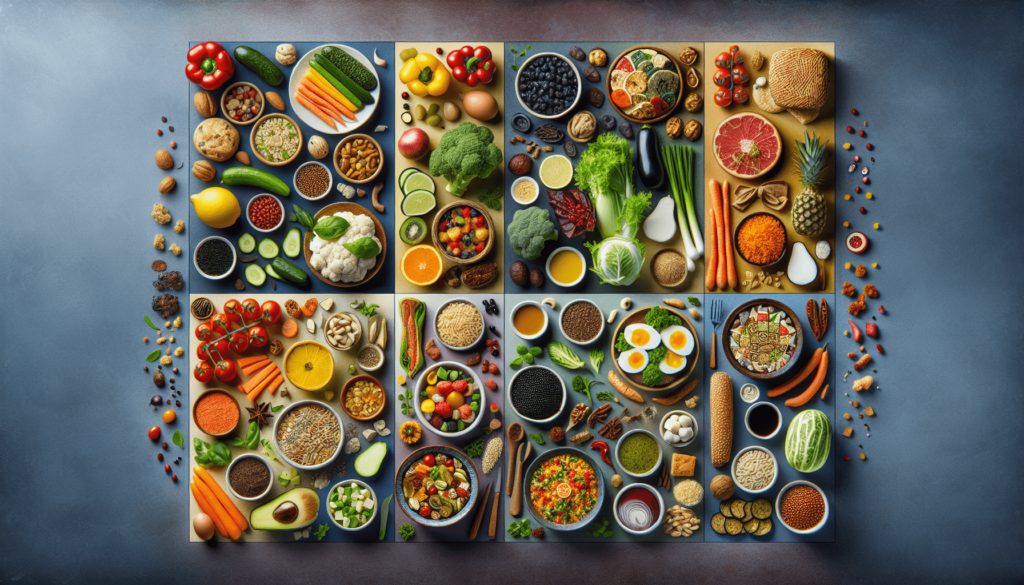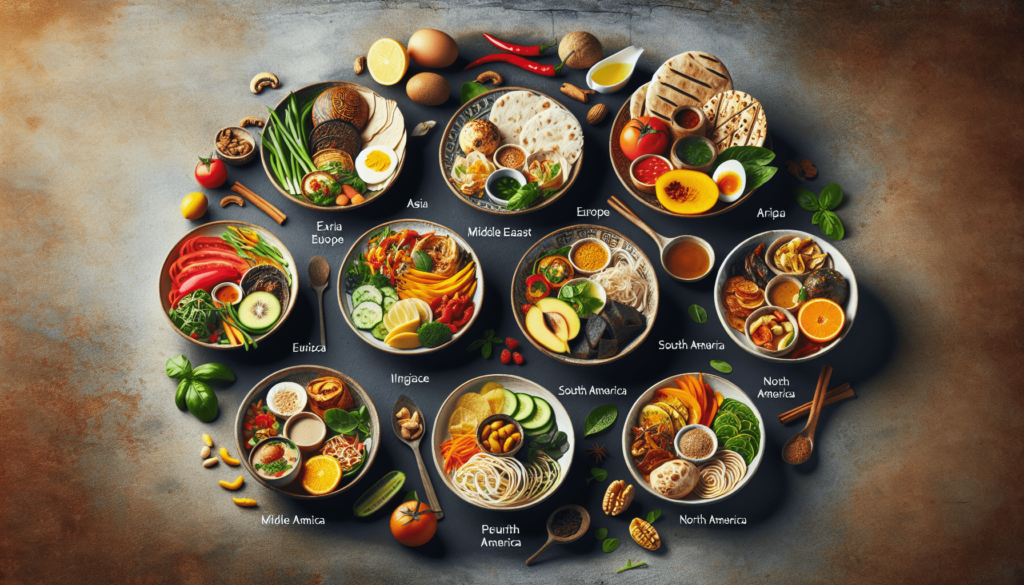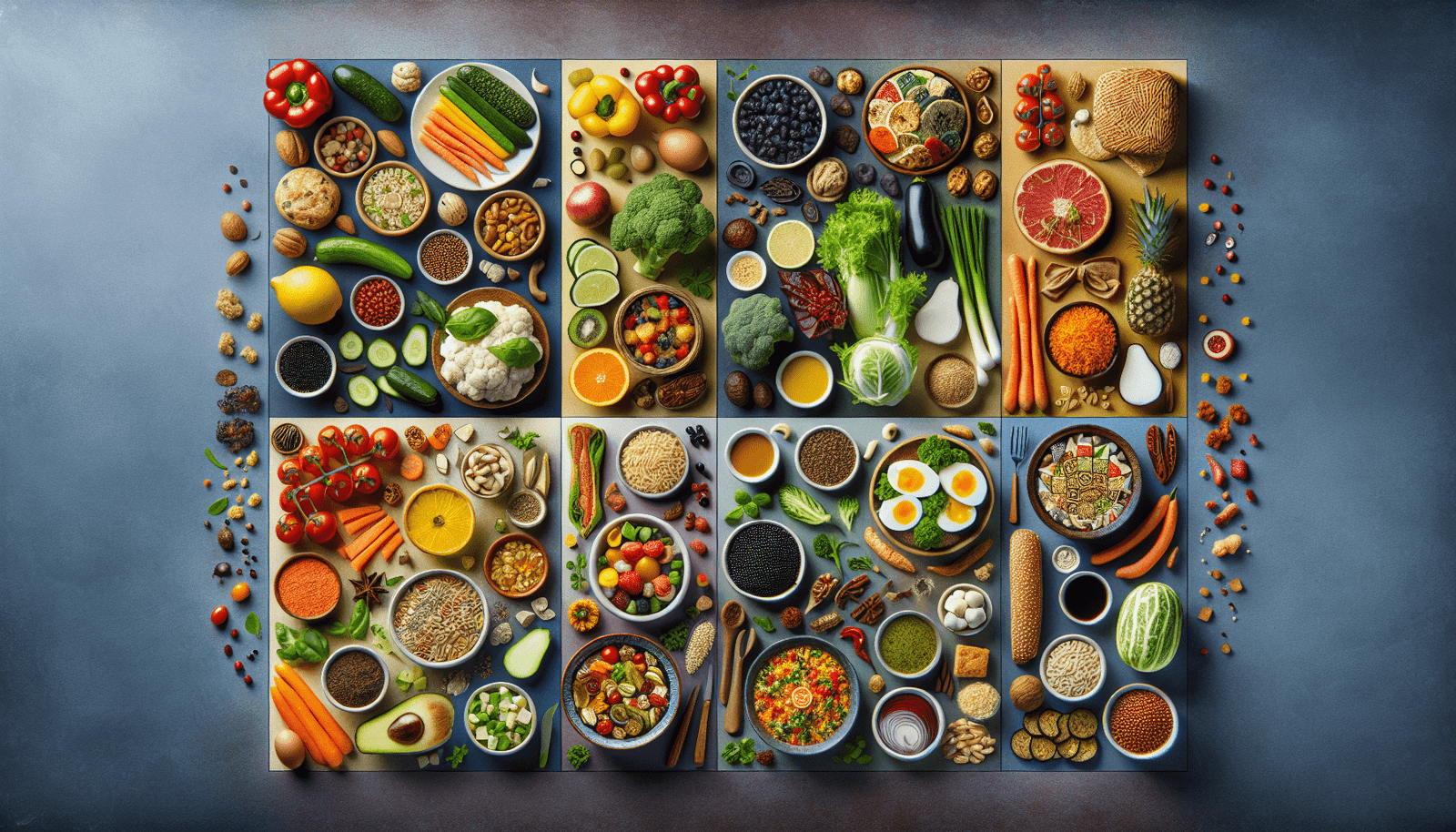Are you ready to embark on a culinary adventure that not only satisfies your taste buds but also promotes a longer, healthier life? Look no further! In this article, we will take you on a delightful journey through seven global cuisines that have been proven to boost longevity. From the aromatic spices of Indian cuisine to the heart-healthy staples of the Mediterranean diet, each cuisine offers unique health benefits that will spice up your life. Get ready to indulge in flavors from around the world while nourishing your body and reaping the rewards of a vibrant, energetic future.

Introduction to Global Cuisines
In today’s interconnected world, cultural diversity is something to be celebrated. One of the most exciting ways to explore different cultures is through their cuisines. Global cuisines offer a wide variety of flavors, ingredients, and cooking techniques that can truly spice up your life. Whether you’re an adventurous foodie or simply looking to expand your culinary palate, diving into the world of global cuisines is a fantastic way to indulge in a world of mouthwatering possibilities.
Mediterranean Cuisine
Mediterranean cuisine is renowned for its vibrant flavors, fresh ingredients, and wholesome approach to cooking. This culinary tradition has its roots in the countries surrounding the Mediterranean Sea, such as Greece, Italy, Spain, and Morocco.
Key ingredients in Mediterranean cuisine include olive oil, fruits, vegetables, whole grains, legumes, and fish. These ingredients provide a wealth of nutrients, including antioxidants, healthy fats, fiber, and protein. The Mediterranean diet has been proven to have numerous health benefits, such as reducing the risk of heart disease, improving brain function, and promoting longevity.
Japanese Cuisine
Japanese cuisine is characterized by its elegance, simplicity, and focus on fresh, high-quality ingredients. The traditional Japanese diet revolves around rice, seafood, seaweed, soy products, and vegetables.
One of the hallmarks of Japanese cooking is the emphasis on preserving the natural flavors of the ingredients through minimal processing and cooking techniques. From sushi to tempura, Japanese cuisine offers a wide array of dishes that highlight the delicate balance of flavors.
Japanese cuisine is also known for its health benefits. The consumption of seafood, rich in omega-3 fatty acids and lean protein, is associated with a reduced risk of heart disease. The inclusion of fermented foods, such as miso and soy sauce, promotes gut health and aids digestion.
Indian Cuisine
Indian cuisine is as diverse and colorful as the country itself. With its wide range of spices, flavors, and cooking techniques, Indian cuisine is a sensory experience like no other.
The use of spices, such as turmeric, cumin, and coriander, not only adds depth and complexity to Indian dishes but also offers health benefits. Turmeric, in particular, contains curcumin, a powerful compound with anti-inflammatory and antioxidant properties. The inclusion of lentils, legumes, and vegetables makes Indian cuisine a nutritious choice, providing ample amounts of fiber, vitamins, and minerals.

Mexican Cuisine
Mexican cuisine is a fiesta for the taste buds. It is known for its bold flavors, vibrant colors, and diverse ingredients. From tacos and enchiladas to guacamole and salsa, Mexican dishes are a celebration of the country’s rich culinary heritage.
Traditional Mexican cuisine incorporates a wide range of ingredients, including corn, beans, tomatoes, chilies, avocados, and cilantro. These ingredients offer a plethora of nutrients, such as fiber, vitamins, and minerals. The consumption of spicy foods, such as chilies, can also boost metabolism and aid in weight loss.
Thai Cuisine
Thai cuisine is an explosion of flavors that combines sweet, sour, spicy, and savory in perfect harmony. The use of fresh herbs, such as basil, cilantro, and lemongrass, adds a distinctive aroma and taste to Thai dishes.
Key flavors in Thai cooking include coconut milk, lime juice, fish sauce, and chili peppers. These ingredients not only create a delicious culinary experience but also offer health benefits. Coconut milk is a good source of healthy fats, while lime juice provides vitamin C and antioxidants. Chili peppers contain capsaicin, a compound that can boost metabolism and aid in weight loss.
Greek Cuisine
Greek cuisine is a celebration of wholesome ingredients and simple yet flavorful preparations. From moussaka to souvlaki, Greek dishes are a testament to the country’s rich culinary traditions.
Traditional Greek ingredients include olive oil, feta cheese, yogurt, fresh herbs, and a variety of vegetables. The Mediterranean diet, of which Greek cuisine is a significant part, is associated with numerous health benefits. Olive oil, in particular, is a key component of the Mediterranean diet and is rich in monounsaturated fats, which can reduce the risk of heart disease.
Korean Cuisine
Korean cuisine is gaining popularity worldwide, thanks to its unique flavors and emphasis on fermentation. From kimchi to bibimbap, Korean dishes are a symphony of tastes and textures.
Fermented foods play a significant role in Korean cuisine, providing probiotics that promote a healthy gut microbiome. Korean cuisine also features signature dishes like bulgogi (marinated grilled meat) and bibimbap (a rice bowl with various toppings), which offer a balance of protein, grains, and vegetables.
Middle Eastern Cuisine
Middle Eastern cuisine is a tapestry of flavors, history, and cultural influences. From hummus to falafel, Middle Eastern dishes are renowned for their aromatic spices and hearty ingredients.
Spices like cumin, cinnamon, and sumac are prevalent in Middle Eastern cooking and not only add depth of flavor but also offer health benefits. Cumin, for example, aids digestion and can help alleviate symptoms of irritable bowel syndrome (IBS). Middle Eastern cuisine also incorporates ingredients like chickpeas, lentils, and olive oil, which provide a good source of plant-based protein and healthy fats.
Conclusion
Global cuisines have the power to transform your eating experience and contribute to your overall well-being. Whether you embark on a culinary journey through Mediterranean, Japanese, Indian, Mexican, Thai, Greek, Korean, or Middle Eastern cuisines, you’ll discover a world of flavors, ingredients, and cooking techniques that can enrich your life.
By incorporating diverse flavors and ingredients from around the globe into your diet, you can reap the health benefits that these cuisines have to offer. From reducing the risk of chronic diseases to promoting gut health and boosting metabolism, global cuisines are indeed a pathway to longevity. So why not spice up your life and savor the flavors of the world? Your taste buds and your health will thank you.

